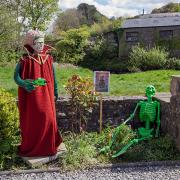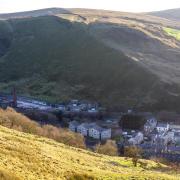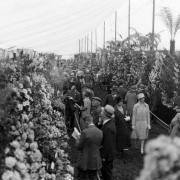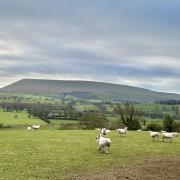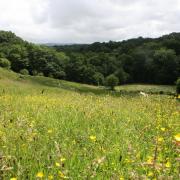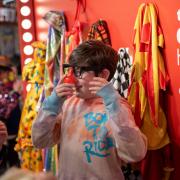The wonderfully named ‘Imitating the Dog’ will be bringing the works of Ernest Hemingway to Lancaster in October in the first ever UK adaptation of one of his books.
I caught up with Co-Directors Andrew Quick and Pete Brooks during a break in rehearsals to find out more about the company and also about the Hemingway novel that has been adapted for the stage for the first time ever in the UK.
The company started way back in 1998 and was formed as a group from Lancaster University. They first began working together and eventually toured a piece that earned them an award. After that they moved to Leeds and started working more seriously as a company to secure funding for projects.
In 2005 Pete Brooks joined the group and worked closely with co-Director Andrew Quick to establish a working relationship and friendship which has seen the company receive all sorts of accolades for the work they produce. Andrew and Pete are joined by Simon Wainwright who is a Sound/Video designer and Laura Hopkins who is a Stage Designer. It’s a rarity for a theatre company such as this to have co-Directors who work on plays together, but for Andrew and Pete it is a formidable partnership that allows them to work off each other and adds additional creative element to the work they are doing.
The company want to create work that challenges and connects with audiences in the plays they perform throughout the UK. They produce their own work, but also contribute to other companies too and have a long list of contributors who help them out along the way.
Their next piece will be the 10th major piece of theatre work they have produced and it is an adaptation that has proved its own challenges along the way.
“A Farewell to Arms” was based on the Ernest Hemingway’s real-life experience in 1918 in Italy. It tells the story of Frederic Henry, an American ambulance driver for the Italian army and his relationship with British nurse Catherine Barkley. Against the backdrop of the war the two protagonists discover the redemptive power of love and experience the loss of innocence as they attempt to cement their relationship in a time of devastating conflict.
The decision to produce this version of the story is a contrast of the usual pieces the group perform. They don’t tend to put on adaptations of stories or plays, preferring instead to write and perform their own work. But, it was the central theme and power of Hemingway’s work that appealed to both the Directors and the challenge to convert the deep story into an entertaining play. It was also their admiration of Hemingway’s work that inspired them to adapt the piece, but knowing that they had to ensure the story didn’t deviate from the book and also that Hemingway’s voice was clear throughout.
“The story was written at a very pessimistic state of time. It was just after the First World War in which people realised this wasn’t the war to end all wars and that another war was imminent.” Andrew Quick took up the responsibilities of adapting the story firstly to a 150 page script before further reducing it to 90 pages with Pete offering an editor’s eye to the final piece.
“It was important to keep the strong narrative first person voice as that was Hemingway’s style. It is also imperative to keep that texture. You can’t adapt Hemingway without the Hemingway style.”
I asked them both how difficult it was to secure rights to adapt the play. “When we first approached the Hemingway estate it was a flat ‘no’ and that was that.” The initial rebuff was due to two films of Hemingway’s life due out next year and the estates lawyers simply refusing the rights on those grounds. Over time they approached the estate again and eventually secured the rights to the play which premieres on October 10th.
“Rehearsal are underway and there is a mixed feeling of excitement and fright. It is tiring for both actors and directors as we rehearse from 9:30am to 8:00pm six days a week which strains the performers vocally.”
They are looking forward to seeing their work in action. “Audiences are much more sophisticated about how they understand a story nowadays. The demands of naturalism happen in a very refined space. People are becoming less frightened of storytelling in theatres.”
Both Andrew and Pete carry a laid back, but intelligent air to their work and spoke passionately of their art and the excitement of the piece they have created from a classic story.
The play opens at the Dukes, Lancaster (www.dukes-lancaster.org) from the 10-25 October and tours the UK including The Lowry from the 13-15 November. For a full list of tour dates and venues visit the website www.imitatingthedog.co.uk/a-farewell-to-arms
@robgemmell1








